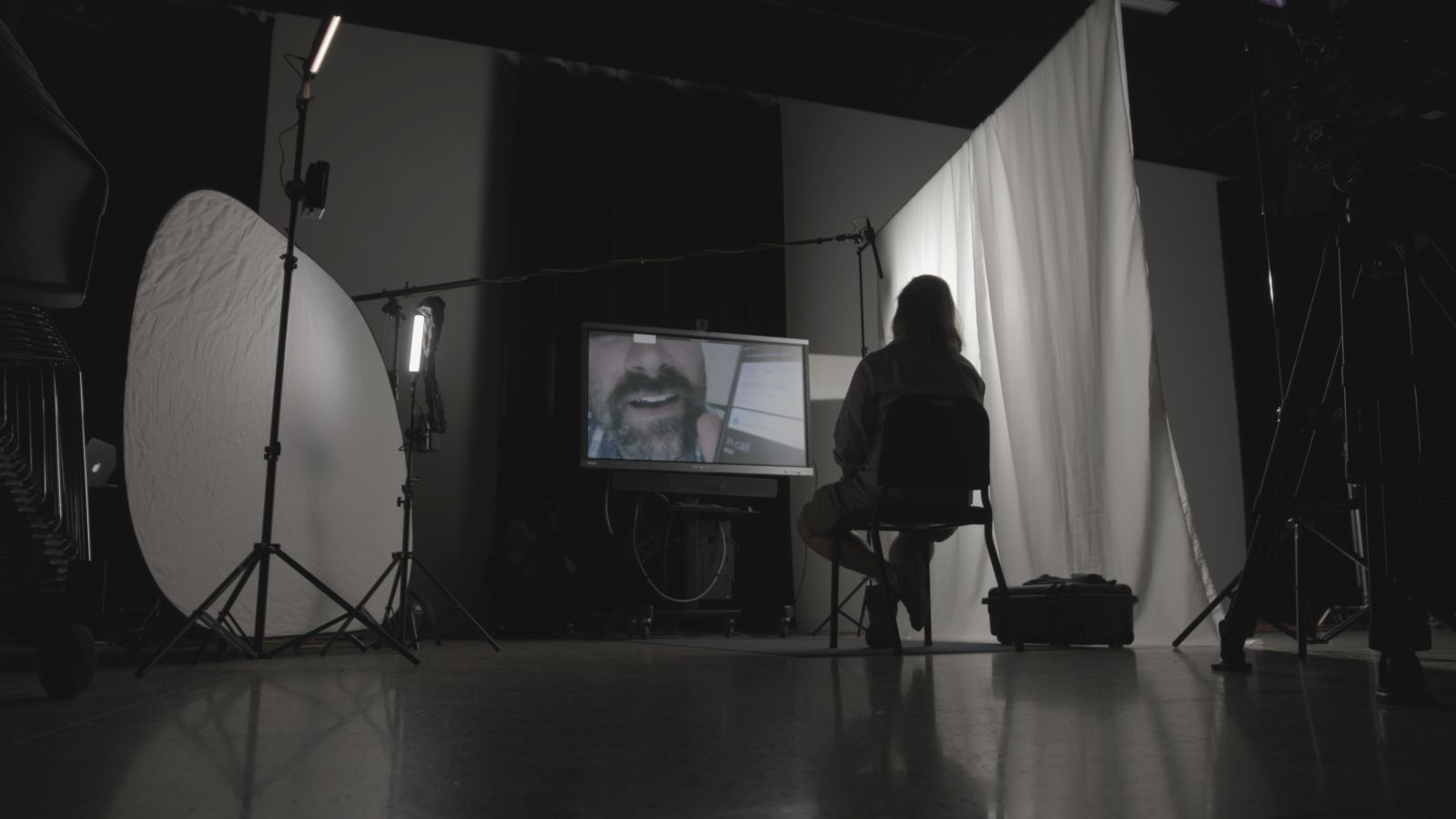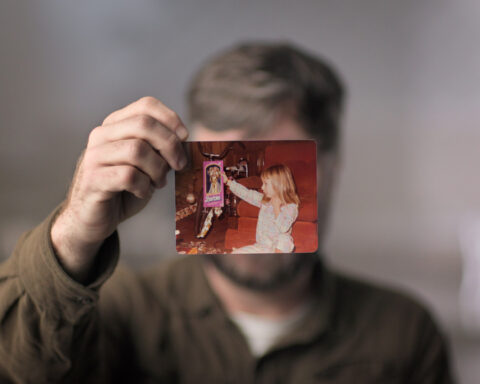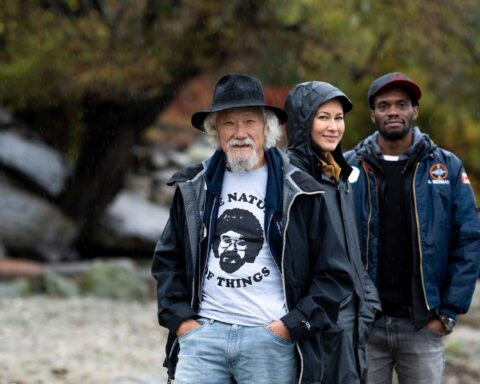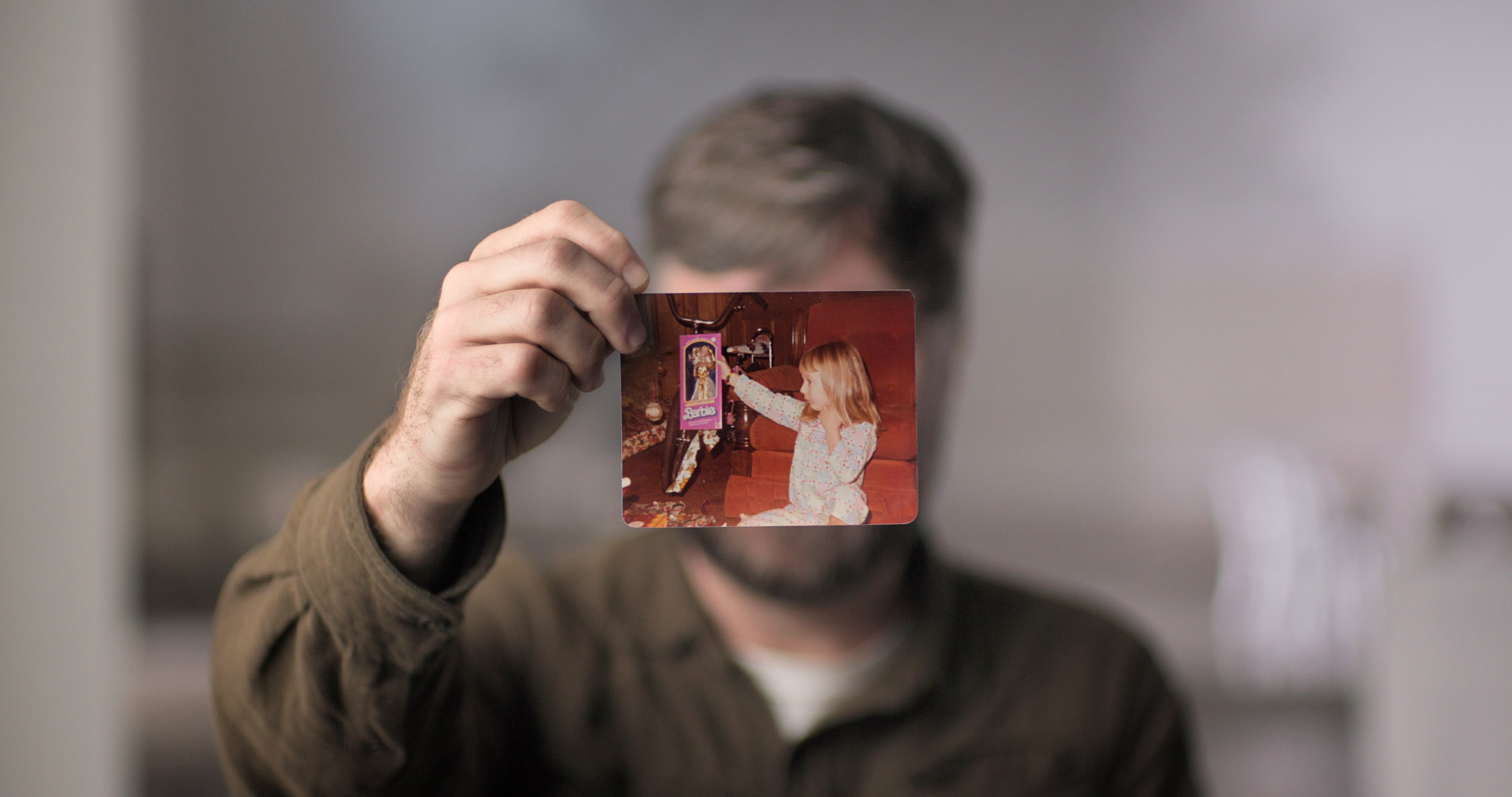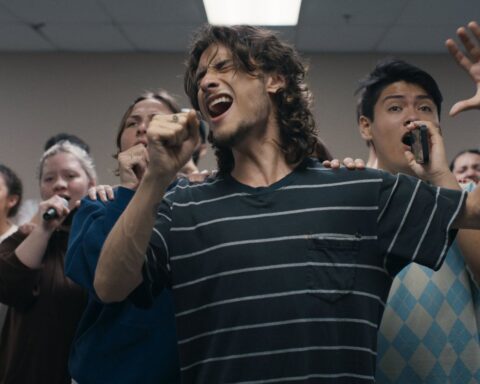Two documentaries are the standouts out in this year’s ten-film competition at the Windsor International Film Festival (WIFF). The hometown favourite Shamed arguably held up as one of the stronger films at this year’s festival as director Matt Gallagher gave a tough look at local online vigilante Jason Nassr, who made headlines for his entrapment scheme Creeper Hunter TV. The documentary features gripping and revealing interviews with Nassr as he reflects upon his crimes without remorse. After much speculation about whether Nassr would crash the party and make a surprise appearance at WIFF, there were no reports of his attendance. Instead, the festival rightly gave the spotlight to people recovering from his crimes.
Shamed tells how Nassr posed as a minor on adult dating websites with the intent to ferret out, expose, and shame perceived pedophiles. Shamed counters Nassr’s testimony with devastating perspectives from survivors of his crimes, as well as loved ones of victims who died by suicide after public pressure, targeted harassment, and job losses made their lives unbearable. The survivors, family members, and friends offer a heartfelt case study in the need for media literacy in the age of the online mob. The film invites difficult if necessary conversations about asking questions when anyone can publish a story and reframe the lives of others through the influence their platforms wield. The doc’s an easy standout in WIFF’s national spotlight for the power that comes through hearing these stories. Read more about Shamed in our interview with Gallagher and producer Cornelia Principe.
On the flipside of Shamed is WIFF’s other competition doc The Pitch, directed by Michèle Hozer. The film takes audiences behind the scenes of the making of the National Super League as retired soccer player Diana Matheson endeavours to establish a professional league in Canada. But as Matheson and company encounter hurdle upon hurdle, often hearing that there’s no interest in women’s sports even though the viewership data says otherwise, the film makes a compelling challenge to push back against the mindset of the old boys’ club that still holds the purse strings.
The vérité-style doc, which, like Shamed, was made through TVO, uses the challenge of creating a women’s soccer league as a catalyst for a wider conversation about workplace equity.
The Pitch finds an inspiring story by drawing upon the voices of women athletes who’ve represented their country well, winning medals at the Olympics and committing themselves to years of training for the delight of audiences. Read more about The Pitch in our interview with Hozer. It debuts on TVO November 9.
While WIFF’s two docs in competition went home empty-handed, the $25,000 WIFF Prize in Canadian Film did go to a filmmaker with roots in documentary: Montreal, My Beautiful from Chinese-Canadian filmmaker Xiaodan He. The director follows her 2020 feature doc My Father’s Journey, about her dad’s spiritual strength in the face of cultural assimilation, with a deeply moving drama about an immigrant mother Feng Xia (Joan Chen) finding herself anew in Montreal. The film observes as Feng commits to finally learning French after living in Quebec for over a decade. The lessons inspire her to take a chance on love with a younger woman (Charlotte Aubin). He displays great sensitivity with her subject matter, deftly interconnecting questions of belonging that intersect from immigrant experiences and those of the LGBTQ+ community.
Chen gives a luminous performance, for which she learned French for the part. Feng’s broken Franglais offers a touching metaphor for a woman learning how to articulate her sense of self for the first time. It’s one of the actress’s stronger performances, which itself reflects a notable second wind in Chen’s career on the heels of impressive work in dramas like Didí and The Wedding Banquet. Aubin also makes a strong impression as Feng’s love interest Camille. It’s a great part that contrasts with the restrained interiority of Chen’s performance. The two actors should make Montreal, My Beautiful one to watch when it opens in theatres next year.
The film itself marks the best example from the competition that WIFF really is carving out its place as a hot spot for the best in Canadian film. Montreal, My Beautiful stands among a whopping seven titles representing Quebec in this year’s WIFF competition. While the stat illustrates Windsor’s commitment to Quebecois cinema—it shows more Francophone Canadian films than any other festival in Canada—it means the competition feels a little lopsided for a national spotlight. That said, though, the Quebecois films are generally WIFF’s strength. (Unfortunately, one of the Quebecois titles, Compulsive Liar 2 / Menteuse was the only competition film I missed.)
For example, competition title The Cost of Heaven (Gagne ton ciel) from director Mathieu Denis (Those Who Make Revolution Halfway Only Dig Their Own Graves) offers a tautly constructed character study. It tells the story of hardworking finance man Nacer (Samir Guesmi), whose desires for upward mobility hit a ceiling. Nacer sees himself passed over for younger colleagues he trained, while the cost of living increases. Bill accumulate as he writes cheques for a lifestyle he can’t afford, but desires to display so that peers perceive him as successful.
One bad decision leads to another as Nacer gets in over his head, and The Cost of Heaven spins a captivating moral fable as Nacer’s situation worsens daily. Driven by an utterly compelling performance by Guesmi and an unflinching sense for the economic hardships faced by the working class and the systemic inequities that compound social mobility, Denis’s film keeps its finger on the pulse of contemporary culture as the thriller quietly and potently simmers. Top-notch cinematography by Sara Mishara envelops Nacer in the coldness of capitalist society.
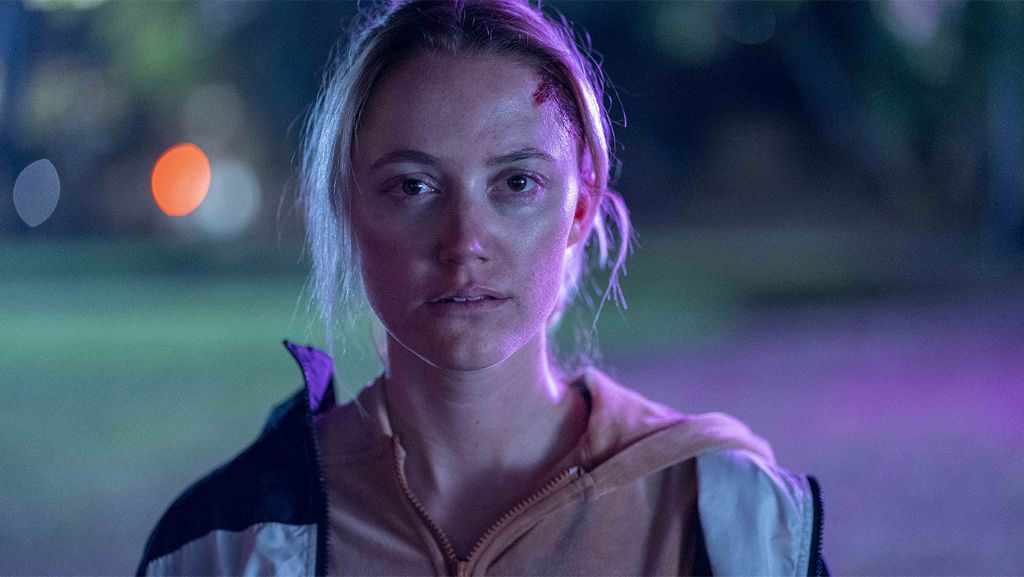
Mishara actually stands as something of the MVP of the WIFF competition as the cinematographer of three titles. Besides The Cost of Heaven, Mishara lensed the sex farce Two Women (Deux femmes en or) and the crime drama In Cold Light. The latter actually ups the Quebecois quotient as Montreal filmmaker Maxime Giroux helms a script from Toronto writer Patrick Whistler in this Alberta-shot drama. In Cold Light brings considerable star power including Maika Monroe (Longlegs) in a terrific performance as Ava, a young woman on the run after her drug dealer brother is killed during an encounter with a dirty cop (Allan Hawco). The film essentially kicks into gear as a high-octane chase movie as Ava goes on the lam while trying to protect her infant niece and her father. The latter is played by Troy Kotsur, who is every bit as good here as he was in his Oscar-winning turn in CODA.
The film adds to a notably strong year for Deaf cinema and accessibility in 2025, particularly in a great scene where the hearing Ava confronts her father to assure him that she’s not responsible for her brother’s death. Giroux stages the scene in the family’s backyard as a motion sensor light interrupts their ability to communicate through American Sign Language. The father and daughter begin interacting with the light, commanding its attention as the tension escalates and they seek to make peace. The ultra-violent film sometimes misses a beat as it sails quickly through the story, but stylish direction and top-notch performances make it a worthy gamble. The film gets bonus points for casting Helen Hunt as a crime boss. She earns her Telefilm dollars with one heck of a cameo.
Two Women, meanwhile, is Chloé Robichaud’s wickedly funning reimaging of the 1970 “film des fesses.” This lively farce rouses a pair of neighbours from their suburban slumber as Violette (Laurence Leboeuf) struggles with an itch during her maternity leave. With the help of her neighbour, Florence (Karine Gonthier-Hyndman) she scratches that itch while striking up an unlikely friendship as their mutual dissatisfaction with their sex lives unlocks a challenge.
Two Woman explores the thrills and consequences of polyamory and monogamy alike as Leboeuf and Gonthier-Hyndman offer raw, brave, and comically committed performances as the two women exploring the limits of fidelity and desire. It considers infidelity from all angles, sharply and cleverly asking when an action becomes a cheat. It considers when one ultimately becomes unfaithful to oneself by denying happiness for the sake of a lifelong pact.
The film adds to a refreshingly good sense of humour in WIFF’s competition alongside comedies Lovely Day (Mille secrets, mille dangers) and Peak Everything (Amour Apocalypse) from directors Philippe Falardeau and Anne Émond, respectively. Both films are enjoyably chaotic. They’re big swings that don’t entirely stick their respective landings, but each offbeat tale brings its own rewards.
Falardeau’s film adapts Alain Farah’s memoir about his wedding day and a childhood trauma that rears its head just before he and his bride say “I do.” Lovely Day mostly works as a madcap ensemble film as Falardeau and the game cast have a lot of fun with the comedic tradition of adding bodies to a room to up the laughs. The film can be grating at times when the drama becomes too much—Lovely Day is a “loud” film with many over the top performances and histrionics that make for a rocky ride—but its moments of levity are genuinely sweet. It’s also refreshing to see such a grand and polished ensemble comedy in Canada.
Ditto Amour Apocalypse, which proves an acquired taste if there ever was one. Audiences might best suspend their disbelief and go along for the peculiar ride as kennel-owner Adam (Patrick Hivron) falls in love with the telephone operator (Piper Perabo) at solar lamp company. Her reassuring voice soothes Adam’s anxieties about climate change, over-population, over-consumption, and the end of days. But when the latter seemingly arrives at the lamp company in the form of an earthquake and the smoke from nearby forest fires lend the moon an unsettling blood-red hue, Adam worries there’s no saving humanity. Hivron’s offbeat performance makes for an amicable odyssey and, while just as many jokes miss as they land, Émond’s bold satire offers one of the most original Canadian films of the year.
Finally, WIFF’s Canadian competition offers a moment of soul-searching clarity in Where Souls Go (Où vont les âmes?). It’s the first dramatic feature from actor Brigitte Poupart following her excellent 2012 documentary Over My Dead Body. The topical Where Souls Go features a powerhouse cast of Monia Chokri, Julianne Côté, Micheline Lanctôt, and Sara Montpetit as a family deals with public scrutiny during a time of grief. The film asks heavy but relevant questions when the family’s youngest sibling, Anna (Montpetit), announces on Instagram her desire to end her life on her own terms via Medical Assistance in Dying (MAID) after accepting the finality of a terminal diagnosis.
Poupart smartly trusts the strength of her actors as the sisters revisit painful memories that drove them apart and agree to reconcile their differences so that Anna may die in peace. Chokri is especially strong as the eldest sister with the heaviest burden to unload, and the actor gamely meets the challenge, as all her co-stars do as Where Souls Go bridges to its well-earned catharsis. For all the talent on display in Where Souls Go, the film seems curiously absent from the festival circuit outside Quebec. However, its place in Windsor also speaks to the value of WIFF’s competition as a showcase for original auteur-driven works that deserve a lot more space on Canadian screens.




